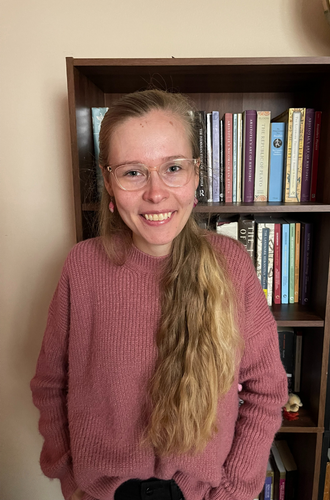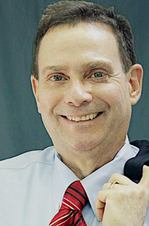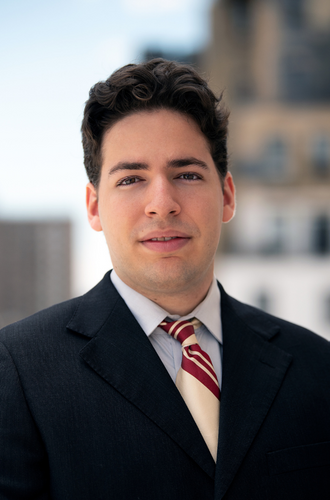Announcing the Winners of the 2022 Andrew W. Marshall Paper Prize on Creative Bursts and Intellectual Outliers
Creativity
The Andrew W. Marshall Foundation (AWMF) awarded multi-round prizes from $500-$13,000 for intellectually bold work on Creative Bursts and Intellectual Outliers. The grand prize-winning paper was presented and published in Spring 2023. Congratulations to our Semi-Finalists, Finalists, and Grand Prize-Winner Emily A. Davis!
The Incalculable Element: Ancient Innovations for Modern Security Problems
When a country’s stability is at risk and established security strategies have become less effective, how can leaders encourage needed ingenuity within their groups? Thucydides provides an insightful perspective on this question in his discussion of how the Sicilians, inspired by the unconventional leadership of the general Hermocrates, facilitated Sparta’s defeat of Athens in the Peloponnesian War. As Thucydides shows, Hermocrates spurred his listeners to reflect on their limitations and biases at a time that, given its imminent dangers, would have seemed to call for nothing but confident action. This self-reflection, by allowing the Sicilians to reconsider their moral and cultural norms, reform their military structures, and join with unlikely allies to resist Athens’ imperialist threat, fostered a truly innovative outlook that made that resistance succeed. Highlighting the value of critical thinking in even the most perilous of circumstances, Thucydides’ text gives military groups essential tools for developing the creativity that is so crucial to U.S. security strategy today.

Finalists
 Evan Dudik
Evan Dudik
Stress Testing Strategy and Policy Using Ideas from the Philosophy of Science
This paper introduces the fundamental insight of Sir Karl Popper, as modified by Irme Lakatos, that a theory should make explicit the data that would falsify—not-verify—that theory. The paper argues, using Popper’s insight, that worthy policies and strategies proffer precise predictions of what facts, tests or observations would falsify the strategy. The paper applies Popper’s falsification to geopolitical policies and strategy, testing recent strategic proposals regarding China and Ukraine propounded by writers such as George Friedman and Henry Kissinger. It briefly employs Hempel’s Covering Law model of scientific explanation to make explicit the logic of falsification and analyzes real-world barriers to falsification using in-depth interviews of retired front-line U.S. military foreign area officers and other intelligence and foreign policy veterans. It examines two organizational scenarios where falsifying observations are welcome and not so welcome and provides suggestions as to how to make falsification a real-world activity in a world where messages of contraindication receive a less than welcome response.
 Ido Levy
Ido Levy
Learning from the Enemy: Creative Bursts and Our Learning Competition Against Islamic State Suicide Bombs
The Islamic State (IS) has demonstrated strong innovative tendencies. Most prominent among its adaptations was the employment of suicide vehicle-borne improvised explosive devices (SVBIEDs) as weapons of conventional warfare. This paper analyzes the Islamic State’s development and use of SVBIEDs through a framework of terrorist innovation and learning competition and introduces the concept of ways of innovation. Using past literature, primary sources, and interviews with military personnel, it identifies the main drivers of IS innovative processes as well as those of its adversaries in their efforts to counter the SVBIED. For IS, ideology, leadership, experimentation, and organizational capital were key drivers fostering creative bursts and intellectual outliers. For the coalition, opportunity created by the interaction of coalition and partner forces was the main driver. The Islamic State’s disregard for force preservation made its innovative processes costly. Lack of creativity among partners and absence of ambitious coalition leadership and operational thinking inhibited anti-IS innovation. The case study shows that organizations with ambitious goals and leaders, strong organizational capital, and a penchant for risk-taking are more conducive to creative bursts and intellectual outliers. Development of strong relations among actors within an organization can also lead to greater innovative capacity.
Semi-Finalists
Jonathon Glidden, Alden Daniel
Policy Will Never Die: How English and German Rock Renaissances can Inform American Policymaking Creativity
Alex Hu, Mordechai Levy-Eichel
Progress and Dis-order in the Public Sphere
Keith Pennington
Locating Innovative Bursts: Measuring Competitive ‘Surprise’ in Innovation
Philip Reiner, Leah Walker
Creative Partnerships for an Era of Competition
To Our Reviewers
Facilitator: Stephen P. Rosen
John Balfe
Brandon Gentry
Henry Kressel
William Quinn
James G. Roche
Abe Shulsky
Anna Simons
Allan Stam
Tony Tether
Jeff Ubois
Laurence Zuriff
